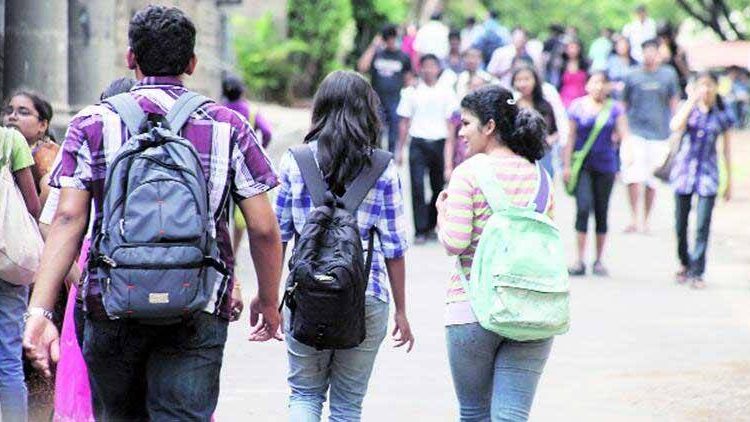NITI Aayog Recommends Dedicated Funding Agency, Fee Autonomy To Improve State Universities
Report points out financial constraints due to insufficient grants, over-reliance on traditional revenue streams and a lack of autonomy to adjust fees with inflation.
NEW DELHI: In an attempt to address the challenges related to government-run universities in states, the NITI Aayog has made a series of recommendations to improve financial sustainability, including allocating six percent of the country’s GDP towards education, establishing a finance agency, such as the Higher Education Financing Agency (HEFA), and introducing innovative funding models, such as self-financed programmes and public-private partnerships.
A report titled ‘Expanding quality higher education through states and state public universities’ released by the NITI Aayog released on February 10 calls for granting universities more autonomy to adjust fees in line with inflation, within reasonable limits, saying that it would help the institutions ease their financial constraints.
It provides a detailed quantitative analysis on vital indicators of quality, funding and financing, governance and employability over the last decade. It also provides the distilled essence of the insights gained from extensive stakeholder consultations held with State government officers of higher and technical education departments from over 20 States and Union Territories, Vice-Chancellors, and senior academicians of 50 SPUs, and Chairpersons of several State Higher Education Councils.
The report said the State Public Universities (SPUs) cater to more than 80% of the total student population pursuing higher education, thus are central to achieving the primacies of the National Education Policy (NEP) 2020.
During consultations with officials from 20 states and UTs and the Central government, vice-chancellors, senior academics from more than 50 SPUs, and heads of state higher education councils, the NITI Aayog identified several challenges faced by the government-run universities. Financial constraints arising from inadequate government grants, over-reliance on traditional revenue streams, and lack of autonomy to raise funds or adjust fees within reasonable limits have been identified as the major issues, the report said.
The report also highlighted limited administrative autonomy, lack of transparency in appointment process for teaching and non-teaching staff and limited engagement with the private sector among the other challenges that are plaguing these universities.
The NITI Aayog report has made 80 policy recommendations under 12 sub-themes across four major thematic areas of quality, funding and financing, governance, and employability.
NITI Aayog member Dr. Vinod Kumar Paul positioned the report in the context of NEP implementation and India’s vision for Viksit Bharat 2047. He emphasised that with 80% of India’s higher education taking place in SPUs, reforming them is crucial for creating human capital and establishing India as a knowledge hub.
Diversified revenue generation
Stressing that education should get allocation equivalent to 6% of the GDP as recommended in the NEP 2020 and increased government support, the report recommended establishment of a finance agency similar to the HEFA, dedicated to SPUs.
HEFA, a joint venture of Canara Bank and the Ministry of Education, provides financial support as loans for developing educational infrastructure and research and development in educational institutes.
Highlighting SPUs’ over-reliance on traditional revenue streams, the report has called for diversifying the sources of funding and revenue.
The NITI Aayog has recommended encouraging SPUs to expand self-financed programmes, offer consultancy services to industries and government agencies, as well as strengthen alumni engagement to boost financial contributions.
It suggests exploring innovative funding models and public-private partnerships (PPPs) to supplement government grants and support initiatives to enhance employability.
Fee autonomy and tax exemptions
Admitting to the complexities associated with the fee autonomy, the NITI Aayog has called for granting SPUs the ability to adjust fees with inflation, while ensuring scholarships and fee waivers for disadvantaged groups.
“Identify the SPUs with strong financial management practices to pilot a programme with limited fee autonomy. Establish clear guidelines for fee adjustments within the pilot programme, considering factors like inflation, programme costs, and student affordability. Monitor the impact on finances, enrolment, and quality and implement a reasonable fee structure with merit-cum-means scholarships,” the report recommended.
According to the report, policy changes at both the state- and central government-level should be implemented to grant tax exemptions on revenue from CSR grants, as well as educational and research activities.
Regulatory-facilitator model
The report has also recommended adopting a ‘regulatory-facilitator model’, where the state governments can provide enhanced autonomy to SPUs.
“Enable a shift towards a ‘regulatory-facilitator’ model for SPUs and implement policy changes at the state government level to grant SPUs greater autonomy in areas like curriculum development, faculty recruitment, and financial management. Establish clear guidelines and performance indicators to ensure universities exercise autonomy responsibly and transparently,” the report said.
It has recommended formulating state-level higher education vision and policies to cater to the specific needs of SPUs within each state. This policy should be tailored to address the unique educational needs rather than adopting a generalised approach. Encourage states to develop micro-visions of policies to ensure effective evaluation of quality metrics and promote targeted initiatives for educational enhancement, the report said.
Localised accreditation
The NITI Aayog report has recommended revision of the composition of governing councils to ensure a majority of academicians, researchers, alumni and administrators, with minimal or no political appointees.
Registrars, finance officers, and examination controllers should be appointed from the teaching fraternity to ensure a visionary approach and better understanding of academic requirements,” it said.
It recommended localised accreditation and assessment frameworks for SPUs and their affiliated colleges, considering local needs, industry requirements, and national priorities while maintaining global relevance.
For full policy report of NITI Aayog on ‘Expanding Quality Higher Education through States and State Public Universities’, click here.
For full policy brief, click here.


Comments are closed.